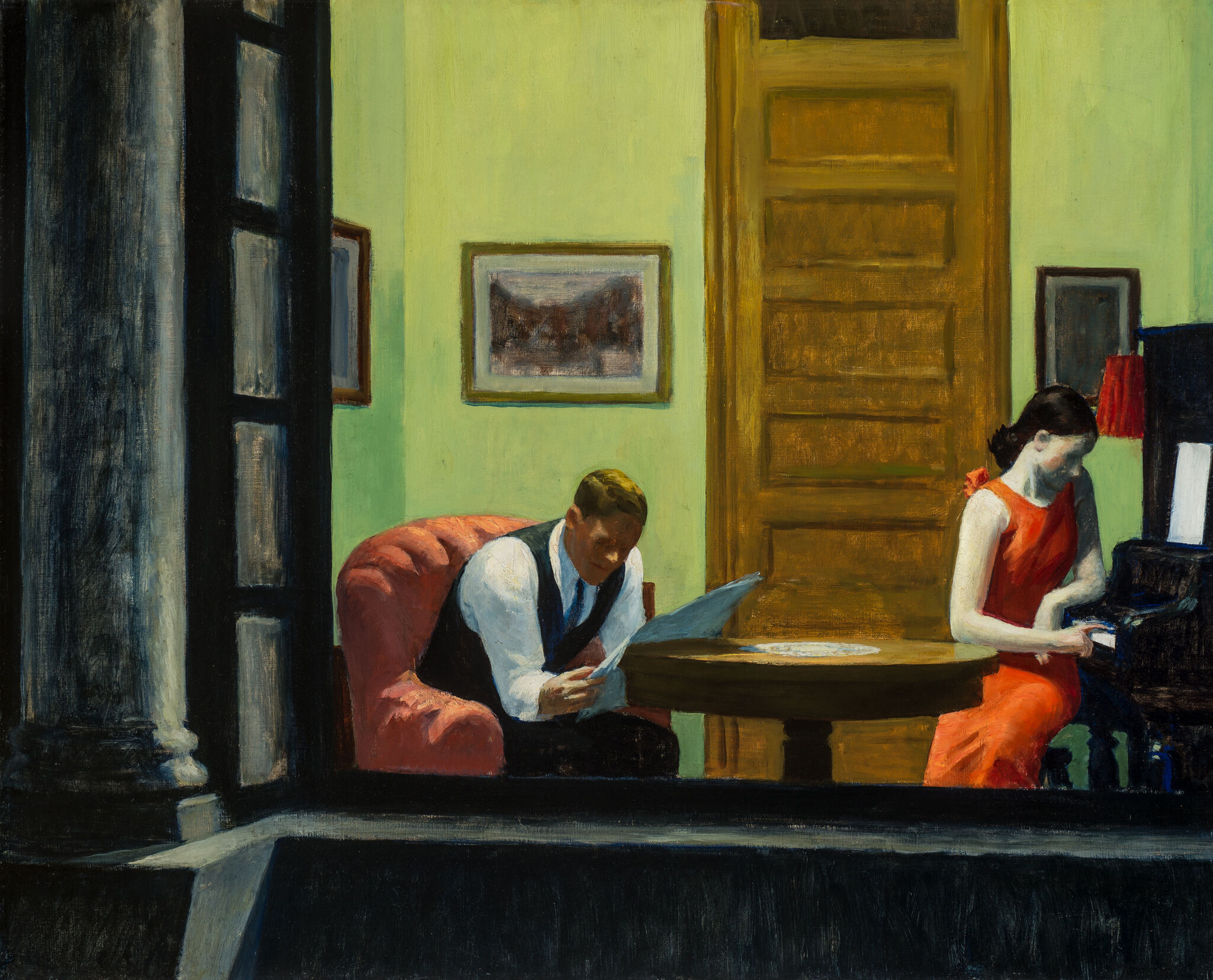Edward Hopper’s New York | Art & Artists
Oct 19, 2022–Mar 5, 2023
Edward Hopper’s New York | Art & Artists
The Window
2
Hopper spent hours strolling New York’s sidewalks, riding its elevated trains, patronizing its eating establishments, and attending the theater, always on the lookout for new subjects. He was particularly drawn to the fluid boundaries between public and private space in a city where all aspects of everyday life—from goods in a storefront display to unguarded moments in a café—are equally exposed. The window became one of Hopper’s most enduring symbols, and he exploited its potential to depict the exterior and interior of a building simultaneously, a viewing experience he described as a “common visual sensation.”
Hopper’s interiors suggest the vulnerability of private life in the densely populated metropolis. In Night Windows (1928) and Room in New York (1932), for example, he captures the experience of the city after nightfall as illuminated spaces became a sort of urban theater for passersby. For Hopper, New York’s windowed facades served as dynamic structuring devices that he employed in compositions throughout his career.

